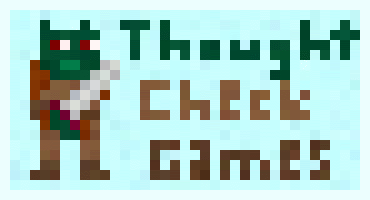Yesterday was the second Steamcraft playtest, and the first one with with multiple players. Yeah, I’m still working with the title “Steamcraft,” even though it’s been used before… I’ll change it eventually once I get a better handle on the setting and whatnot. Anyway. We didn’t get around to combat, so that’s still on the table for future weeks, but we did make some characters and shake them around, and I, at least, learned a few things, some of which is general enough that I’m going to share it.
1. Sometimes concepts that are perfectly clear in your head are muddled on paper; sometimes this is a problem of vocabulary. I’ve got a problem with this, because I can easily distinguish between the two in my head, because I know exactly what I’m talking about: yeah, an Accessory is a special form of Style Dice which you add to your Pool Dice which are different Style Dice! OBVIOUSLY.
… It’s also super-easy to overload simple words like “points” and, yes, “dice” to the point where the reader of the rules is making connections which shouldn’t be there because you’re duplicating terminology. So… don’t do that. Terminology is a tough nut; too many terms may stop people at the door, too few means that folks get muddled. Old-hat or traditional terms like “hit points” are, well, old hat and uninteresting, whereas futzing them into “valor levels” or whatever obfuscates what they actually are.
2. Sometimes muddled concepts it a problem of presentation. I had not, for instance, put a lot of thought into the order in which parts of a character were created. What does it matter, thought I, if we decide upon a character’s vocation first and then his props, or vice versa? After all, you have to do both.
Well, that was silly of me. It makes a great deal of difference, especially in a game where there is a limited degree of mechanics related to what characters can do and carry with them. There’s a reason some games lead off with a “character concept” phase… because that’s a useful way to think about things. That was just silly of me, forcing my players to decide what they looked like before deciding who they are.
3. On the whole, simplifying things is good. This is a practical lesson I learned between playtest 1 and 2, in which am overly complex system of “conditions” cribbed from the various FATE games was cut away and replaced by a far simpler rolling Advantage and Disadvantage system. Quicker, easier, but doesn’t sacrifice what I want it to be. Ideal! I’ve got a fair amount of this I need to continue doing (which will go a ways to aiding the “too much terminology” problem above. Why do I need both Fortune and Misfortune points as narrative currency, when the only difference is who’s holding them? Why do I need a Most Famous Exploit which is separate from Important Milestones? Answer: I guess I don’t.
4. Sometimes things just don’t work. This may be a fault of the players, or of me as a GM rather than a designer, but Fortune points never got spent. Were they not compelling, were there no opportunities, did they not feel they were useful? Actually, I think the real problem is that they only ever had the one… there are rules to gain more, but they never came up, so… yeah. Here’s a case where the core rule just didn’t seem to do anything, and a rare instance where adding more (rather than taking away) might be necessary.
5. Sometimes you up and don’t think of incredibly obvious things. Here I am, preparing for testers to come around, when I realize that, uh, right now NPCs just use the same rules as PCs, which is well enough for important people but makes no sense for throwaway characters… I need some way to make minions on the fly, so I just cobbled something together at a moment’s notice. I’m sure I would have thought of it EVENTUALLY, but man, it surprised me at the time.
6. Sometimes things DO work. And the folks at the table are like, “Oh, I get it now!” and start rolling the right things at the right time. Man, that’s pretty awesome. That’s a no-holds-barred winning condition, probably comparable to letting go of a child’s bicycle handlebars and letting them take off under their own power, except instead of birthing the child you invented the bicycle. Ad that’s awesome.
On the whole, I’m calling it a successful playtest, albeit but the second ever. More will be forthcoming, hopefully before too long.

